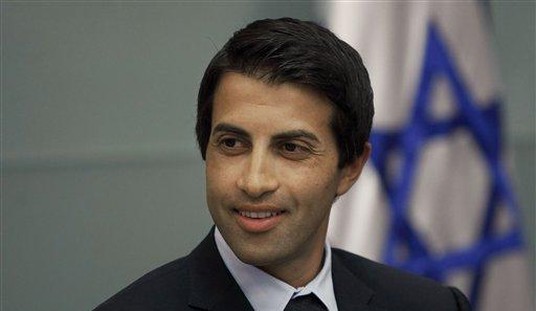These essays follow the annual cycle of Torah readings in synagogues the world over, and provide a taste of rabbinical exposition of each such reading in the week it occurs. For a fuller appreciation of the background and underlying premises, please click here.
Dëvar Torah – Parashath Bo (Exodus X,1-XIII,16)
This week’s parasha finds us in the midst of the ‘Eser Hamakkoth, the ten blows which constituted the Divinely orchestrated campaign to force the Egyptians to release Israel. We know the purpose of the campaign, for Ha-Shem detailed it at the end of prashath Shëmoth: “And Ha-Shem said to Moshe, Now you will see what I will do to Pharaoh, for with a strong hand he will send them forth…” (VI,1), and Rashi elucidates: “Because of My strong hand which will tighten on Pharaoh, he will send them forth.” The Ten Plagues represent the tightening of Ha-Shem’s grip.
Given that this was the purpose of the campaign, which culminates in our parasha with the Makkath Bëchoroth, the killing of the first-born (cf. XII,31-33), it is astonishing to look back and read Ha-Shem’s original instructions to Moshe concerning his mission to Pharaoh’s court. Moshe knew from the beginning what his mission was, but if there was any doubt, Ha-Shem reiterates His promise to the Patriarchs: “…I shall raise you up from the poverty of Egypt to the land of the Canaanite…to a land flowing with milk and honey” (III,17). But then He instructs Moshe: “…And you will say to Pharaoh, Ha-Shem, G-d of the Hebrews, appeared to us, and now, please let us go three days’ trek into the desert and let us sacrifice to Ha-Shem our G-d” (ibid., 18).
To our wondering eyes, as we read this, it seems nothing less than a Divinely perpetrated fraud. If the point of it all was, as we learned in last week’s parasha, Israel’s emancipation from slavery, liberation from Egyptian suzerainty, and the establishment of an independent nation in nearby Canaan (which in fact happened), how could G-d, whose seal is truth (cf. Shabbath 55a and Sanhedrin 2a), instruct Moshe to lie to Pharaoh?
In the event, Moshe and Aharon repeated Ha-Shem’s words virtually verbatim to Pharaoh (cf. V.1), which then formed the basis of a deal struck with Pharaoh in the wake of the fourth makka. We find Moshe again insisting on permission to take a three-day trek into the desert in order to bring sacrifices to Ha-Shem, and Pharaoh assents: “…I will send you forth and you will sacrifice to Ha-Shem your G-d in the desert, only do not walk too far away…” (VIII,23-24). In the end, Pharaoh reneged on the deal when the plague was lifted, but we must assume that had he not done so, Moshe would have been honor-bound to observe it and the bënei Yisra’él would have returned to Egypt after only a few days in the desert. How could this be? Where is the redemption promised by Avraham?
The 20th century scholar Rabbi Ya‘aqov Kaminetsky, in his Emeth lëYa‘aqov, focuses on a famous discrepancy concerning the length of the Egyptian exile. Avraham was told when he made the Covenant between the Halves, “Your seed will be foreigners in a land not theirs, and they will serve [the inhabitants of the land, who] will torment them for four hundred years” (Genesis XV,13). Our parasha insists that the length of Israel’s sojourn in Egypt was 430 years (Exodus XII-40-41). But, as Rashi demonstrates, the actual length of the Egyptian exile was only 210 years. In the words read on Passover from the Haggada, “the Holy One, Blessed is He, recalculated the end” on His realization that Israel would not be able to stand the trial. Had He actually waited the full 400 years, there would have been nothing left to redeem; Israel would have been indistinguishable from the Egyptians. By recalculating the period of exile to begin with the issuance of the Divine decree, Israel’s actual time in Egypt was greatly shortened. From the Covenant between the Halves to the birth of Yitzchaq, 30 years elapsed; from the birth of Yitzchaq to the Exodus, 400 years passed. Ya‘qov was born when his father was 60 (cf. Genesis XXXVI,25) and was himself 130 when he went to Egypt (ibid., XLVII,9). If we subtract 190 from 400, we arrive at 210 years for the actual exile.
Rabbi Kaminetsky is concerned with when this re-evaluation took place, and concludes that Israel’s weakness must already have been apparent when Moshe returned to Egypt in the 209th year of the exile. Therefore, G-d instructed Moshe to request what would in effect have been a spiritual retreat for Israel in the desert, a sort of “revival meeting” to re-acquaint the people with their spiritual heritage from the Patriarchs, and steel them to stand the course for another 191 years.
This was the purpose of the three-day holiday which Moshe and Aharon requested, and was actually negotiated after the fourth makka. But this intention was frustrated by Pharaoh’s reneging on the deal against his own best interests, for he could have had another two centuries of labor out of Israel if he had kept the deal. As a result, the end was recalculated to allow Israel to leave the next year.
But the dark side of this recalculation was that 191 years of relatively milder oppression was now compressed into the much shorter span remaining of the exile, which consequently became much more horrible so that the “account” could be cleared completely on Israel’s liberation. Rabbi Kaminetsky uses this to explain a puzzling verse in our parasha: “I shall bring one more affliction upon Egypt; after this he will send you forth from this when he sends forth completely [kala]; he will utterly drive you out from this” (XI,1). The word kala in this verse is a grammatical anomaly which renders it awkward in the original. This led a number of early commentators (Rashi, Rashbam, Sforno) to treat it as though it meant kullëchem or hakol, i.e., “when he sends all of you forth.”
But the word kol is from a different root — (k-v-l) versus kala (k-l-h) — with a core definition of “complete, finish” and, by extension, “finish off, end.” The Targumim, Aramaic paraphrases dating back to Talmudic times, therefore translate it gëmeira, “completely,” which interpretation finds support in this idea in the Emeth lëYa‘aqov. When Israel was liberated from the Egyptians, whatever debts had led to the exile had been paid in full.
In a footnote to this explanation, Rabbi Kaminetsky’s grandson, Rabbi Daniel Neustadt, tells us that this notion of “temporary redemption” was also mentioned in his grandfather’s discourses, and that he regarded the entire Second Temple period in a similar light. As we see in the Book of Ezra (cf. II,61-63; IX-X), Israel was seriously contaminated during the brief Babylonian exile. In order for the repentance which resulted from Israel’s salvation through the miracle of Purim (cf. Esther IX.27, Shabbath 88a) to take hold, and enthusiasm to be translated into the steadfast, stolid observance which had not characterized the last years of the Kingdom of Yëhuda, this 420-year “retreat” was necessary. Rabbi Neustadt notes that the comparison is apt. The three days in the desert would have sufficed to stiffen Israel’s resolve for another 191 years of Egyptian exile; to stiffen Israel’s backbone for the long night of our current exile, a longer period was needed.
Ezra’s court, the Ansjei Kënesseth ha–Gëdola (“Men of the Great Assembly”), who included in their ranks the last of the prophets, and whose compositions and rulings underlie our present order of prayers, knew what Israel was being prepared to endure, and expressed it eloquently in the special prayers for the Tachanun service recited Mondays and Thursdays: “We have been [the object] of ridicule and mockery among the nations, we have been considered like sheep for the slaughter, to kill and destroy, to beat and degrade; and with all this, we have not forgotten Your name…”
Thanks to that long retreat.









Join the conversation as a VIP Member